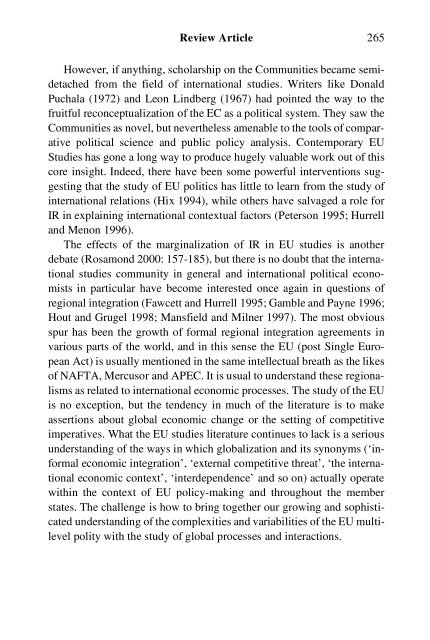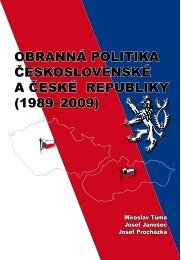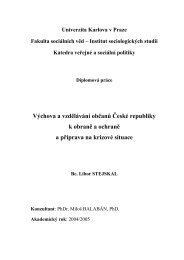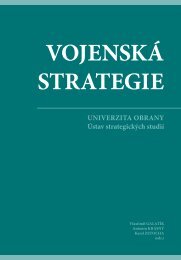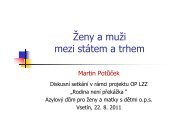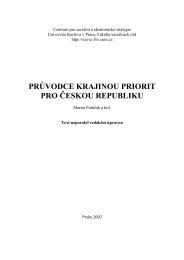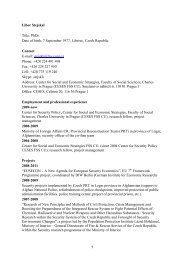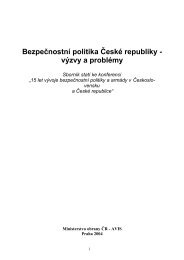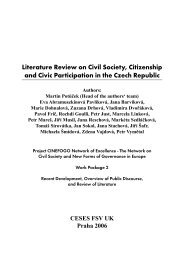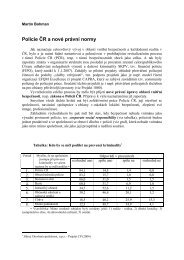Review Article: Globalization and Europeanization
Review Article: Globalization and Europeanization
Review Article: Globalization and Europeanization
You also want an ePaper? Increase the reach of your titles
YUMPU automatically turns print PDFs into web optimized ePapers that Google loves.
<strong>Review</strong> <strong>Article</strong> 265<br />
However, if anything, scholarship on the Communities became semidetached<br />
from the field of international studies. Writers like Donald<br />
Puchala (1972) <strong>and</strong> Leon Lindberg (1967) had pointed the way to the<br />
fruitful reconceptualization of the EC as a political system. They saw the<br />
Communities as novel, but nevertheless amenable to the tools of comparative<br />
political science <strong>and</strong> public policy analysis. Contemporary EU<br />
Studies has gone a long way to produce hugely valuable work out of this<br />
core insight. Indeed, there have been some powerful interventions suggesting<br />
that the study of EU politics has little to learn from the study of<br />
international relations (Hix 1994), while others have salvaged a role for<br />
IR in explaining international contextual factors (Peterson 1995; Hurrell<br />
<strong>and</strong> Menon 1996).<br />
The effects of the marginalization of IR in EU studies is another<br />
debate (Rosamond 2000: 157-185), but there is no doubt that the international<br />
studies community in general <strong>and</strong> international political economists<br />
in particular have become interested once again in questions of<br />
regional integration (Fawcett <strong>and</strong> Hurrell 1995; Gamble <strong>and</strong> Payne 1996;<br />
Hout <strong>and</strong> Grugel 1998; Mansfield <strong>and</strong> Milner 1997). The most obvious<br />
spur has been the growth of formal regional integration agreements in<br />
various parts of the world, <strong>and</strong> in this sense the EU (post Single European<br />
Act) is usually mentioned in the same intellectual breath as the likes<br />
of NAFTA, Mercusor <strong>and</strong> APEC. It is usual to underst<strong>and</strong> these regionalisms<br />
as related to international economic processes. The study of the EU<br />
is no exception, but the tendency in much of the literature is to make<br />
assertions about global economic change or the setting of competitive<br />
imperatives. What the EU studies literature continues to lack is a serious<br />
underst<strong>and</strong>ing of the ways in which globalization <strong>and</strong> its synonyms (‘informal<br />
economic integration’, ‘external competitive threat’, ‘the international<br />
economic context’, ‘interdependence’ <strong>and</strong> so on) actually operate<br />
within the context of EU policy-making <strong>and</strong> throughout the member<br />
states. The challenge is how to bring together our growing <strong>and</strong> sophisticated<br />
underst<strong>and</strong>ing of the complexities <strong>and</strong> variabilities of the EU multilevel<br />
polity with the study of global processes <strong>and</strong> interactions.


